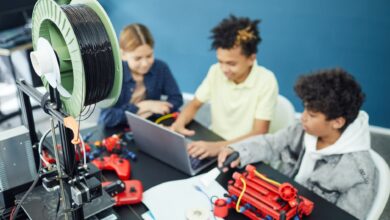Peers and Parents: Navigating Influence and Relationships

Introduction
The dynamics between peers and parents play a significant role in the lives of young people. While peer pressure is often associated with the influence of friends on individuals, it is essential to understand that relationships with parents also shape adolescents’ behaviors and choices. This article explores the interplay between peers and parents, highlighting the importance of recognizing the influence of both parties in the development of young individuals.
The Evolution of Peer Influence
In the past, peer influence primarily revolved around a small group of teenagers within the local community or school. However, with the advent of technology and globalization, the scope of peer influence has expanded exponentially. Today, adolescents are connected to a vast network of peers from around the world, facilitated by social media platforms and the influence of media-savvy adults who target this demographic. While this may give the impression of overwhelming peer influence, it is crucial not to underestimate the agency and autonomy of individuals in shaping their own judgments and decisions.
The Complexity of Identity Formation
During adolescence, young people undergo a process of identity formation, seeking to define themselves independently from their parents and adults. This quest for self-discovery often leads to anxiety and a strong attachment to peer groups. While initially exploring different labels and characteristics, as individuals mature, they exercise more choice and consciously adopt behaviors and appearances that align with their personal and social empowerment. It is important to acknowledge that peer influence is not solely a one-way street but rather a reciprocal process where individuals actively engage in shaping their identities.
Understanding Motivations and Choices
To comprehensively explain why young people adopt specific habits or styles, it is necessary to consider social processes beyond peer pressure. Studying individual motivations, choices, and the formation of like-minded communities can provide insights into the development of certain styles or behaviors. Adolescents often engage in discussions with their parents, employing arguments that highlight the strengths of their peer groups or making comparisons to other parents. Statements like “Everyone in my friend group has an iPhone except me” or “Anyone can go out and stay up late” are common expressions of this negotiation of power.
The Role of Parents
Parents, in turn, may find themselves puzzled or resigned when confronted with their child’s references to the peer group. They may question whether their child’s rebellion signifies a change in attitude and consider transitioning from a purely authoritative role to a more friendly approach. Some parents believe that assuming the role of a “buddy” gives them an advantage, fostering better communication and preventing complete detachment of their child from the parent-child relationship. However, it is crucial for parents to recognize that the parent-child relationship can never be entirely equal until the child becomes an adult.
The Importance of Parental Guidance
While young people may desire more freedom and view a friendly relationship with their parents as favorable, it is essential for parents to understand their distinct role. Parents provide a unique perspective based on years of experience and serve as a source of guidance and accountability. While it is natural for adolescents to challenge parental authority, it can also be overwhelming for them to bear the weight of additional responsibilities and decision-making. Parents should recognize that their role extends beyond being a friend and that their guidance and support are invaluable during the formative years.
Providing Alternative Models
Another significant reason for parents to maintain their parental roles is the scarcity of adult mentors for young people. In a world where media often emphasizes consumerism, sexuality, substance abuse, and violence, parents can present an alternative model of behavior and thinking. By embodying a value system that extends beyond media stereotypes, parents become a stabilizing influence in their children’s lives. They can provide a perspective on adulthood that reflects a broader range of possibilities, helping young individuals navigate the complexities of the world.
The Digital Age and Parental Challenges
In today’s digital age, peer interactions have transcended face-to-face interactions and extended into the online realm. Social media platforms such as Facebook and MySpace have redefined the way young people connect and influence each other. Parents face new challenges in understanding and monitoring their children’s online interactions. Navigating these complexities requires open communication, trust, and ongoing education to ensure a safe and healthy online environment for young individuals.
Conclusion
Peers and parents both play crucial roles in the lives of young people, shaping their choices, behaviors, and identities. While peer influence is significant during adolescence, parents provide guidance, accountability, and alternative models of adulthood. Recognizing the interplay between peers and parents helps create a balanced and supportive environment for young individuals. By fostering open communication, understanding motivations, and providing guidance, we can empower young people to navigate their relationships with peers and parents successfully.












